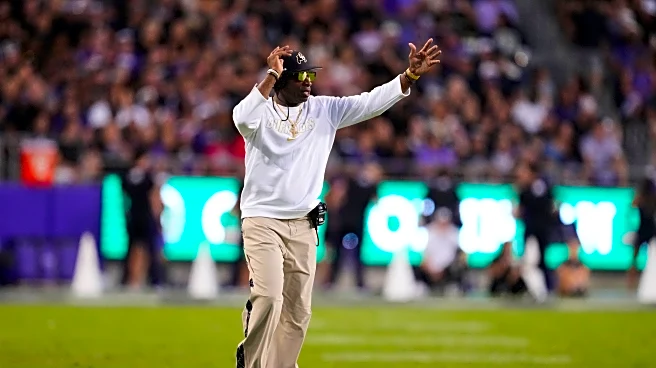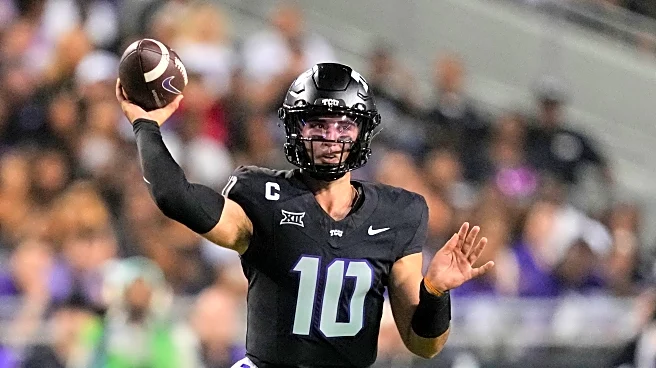What's Happening?
Deion Sanders, the head coach of Colorado, expressed significant health concerns following his team's recent loss to TCU. Sanders, who is 58 years old, disclosed that he believes he has developed more blood clots in his leg, which is causing him considerable pain. During the game, Sanders was seen sitting down at times due to discomfort. He has scheduled a doctor's appointment to address the issue. Sanders has a history of health challenges, including treatment for bladder cancer earlier this year, and has previously undergone procedures related to blood clots, including the amputation of two toes in 2021. His health issues have been a recurring concern, impacting his ability to coach and participate in media events.
Why It's Important?
Sanders' health issues are significant not only for his personal well-being but also for the Colorado football program. As a prominent figure in college sports, his ability to lead and inspire his team is crucial. Health setbacks could affect team morale and performance, especially given Sanders' influential role. Additionally, Sanders' situation highlights broader issues related to athlete health and the long-term impacts of sports-related injuries. His condition may prompt discussions on the importance of health monitoring and support for coaches and athletes alike. The potential absence of Sanders from coaching duties could have implications for Colorado's season and their standing in the Big 12 conference.
What's Next?
Sanders is expected to undergo medical evaluation to determine the extent of his blood clot issues. Depending on the outcome, he may require further medical intervention, which could impact his coaching duties. The Colorado football program may need to prepare for potential adjustments in leadership if Sanders is unable to fulfill his role temporarily. Stakeholders, including team members and fans, will be closely monitoring updates on Sanders' health. The situation may also lead to increased scrutiny on health protocols within college sports, potentially influencing policy changes to better support coaches and athletes facing similar health challenges.
Beyond the Headlines
Sanders' health challenges underscore the physical toll that professional sports can have on individuals, even after their active playing days are over. His experience may serve as a cautionary tale about the long-term health risks associated with sports careers. It also raises ethical considerations regarding the pressures faced by coaches and athletes to perform despite health issues. The situation could lead to broader discussions on the need for comprehensive health care and support systems within sports organizations to ensure the well-being of their personnel.











